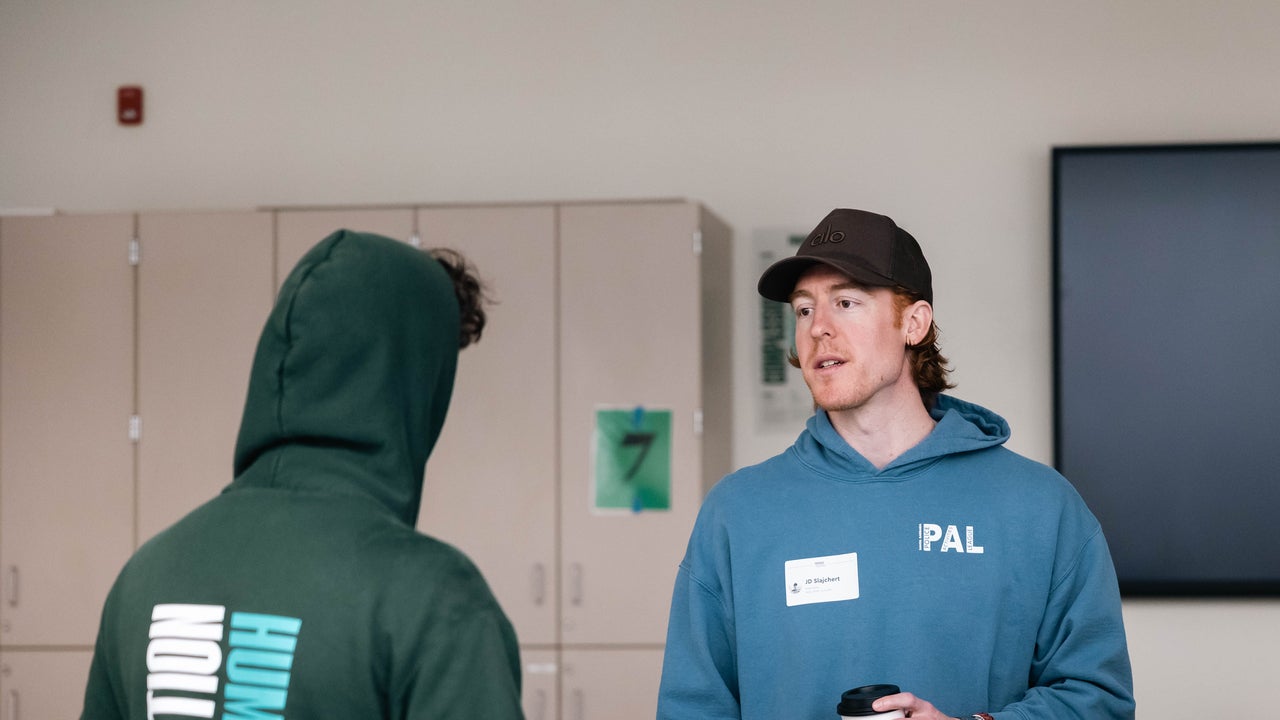A summer binge-watching guide
The Haunting of Hill House | Image: NetflixOur curated list of 10 series that are either complete or have a promising future ahead of them. Perfect for those long, hot summer nights. Continue reading…
/cdn.vox-cdn.com/uploads/chorus_asset/file/24815721/HOHH_105_Unit_01251R_1_2.jpg)
With shows being killed abruptly, their digital corpses occasionally turned to ash for tax purposes, it can be hard being a TV watcher. It’s difficult to invest in any project, knowing that with a flick of a pen, an executive can abruptly end a show if it will save their corporation a buck. Why bother getting into a series designed as a mystery if it ends before the answers arrive?
Frustrated at this uncertainty, we thought we’d list shows that are either complete or have a new upcoming season to look forward to. These 10 are shows I consider unique, excellent, and a showcase of writing, acting, and directing. The perfect way to while away lazy summer hours. In no particular order…
Image: Syfy
Battlestar Galactica (2004)
What starts off as a show about robots warring with humans (in space!) becomes a darker, richer, cosmically existential show, weaving concerns about life, humanity, and the meaning of it all on a tapestry of space dogfights, political betrayals, and the reclamation of a dying species.
The plot starts simple. A lone commander of a decommissioned old spaceship becomes the hammer to a ragtag collection of humans smashing through obstacles for humanity to survive. Edward James Olmos’ Commander Adama is a tired, old war hero, looking to retire like the titular ship he commands, when all of humanity is attacked by robots called Cylons, and he and his crew manage to flee. Collecting other ships along the way, Adam and the last remaining humans must travel to a mysterious, secret planet known only to the upper command: Earth.
To say anything more would ruin it. Watch it, soak it in, fall in love and hate with excellent performances from Olmos, Mary McDonnell as the reluctant final president, and Katy Sackhoff as a self-destructive but brilliant pilot. Betrayals abound when people start realizing the robots can also… look like us. The reveal of the final five Cylons remains my favorite moment of television ever.
Status: complete
The Wire
The most perfect contemporary take on Shakespearean complexity, The Wire is a multi-layered exegesis on the horrors of modern society (especially American society). While it starts off focusing on drugs and crime and the relationship between cops and gangsters, more institutions and the relation to “law enforcement” are introduced. This is a story about how corruption, greed, and struggle are so ingrained into everyday existence that simple joys become fantastical ideals that, despite being unattainable, are still wanted by all. The central monster is whatever institution the characters must live in and feed.
The Wire is also Shakespearean in the sense that the dialogue, colloquialisms, and so forth require attention. Every character has depth and offers insight into the institutions designed to destroy everyone else and the USA.
Creator David Simon, a police reporter, has an eye for complexity yet manages to tell a clear story. He is able to untether the mangled yarn of modern society by helping us follow individual threads that let us see the minutiae and the whole. That he sustains this balance throughout all five seasons without losing the viewer is a testament to his and his creative team’s brilliance.
Status: complete
A quiet, cold, and silent end of the world; the best depiction of T.S. Eliot’s “not with a bang but a whimper” apocalyptic vision, The Leftovers is about what happens when two percent of the world’s population simply vanishes. Showrunners Damon Lindelof and Tom Perrotta, who wrote the book upon which the show is based, kept the entire series to a tight three seasons.
Status: complete
Image: Showtime
A group of all-female high school athletes crash in the middle of the Canadian wilderness and must find ways to survive nature, themselves, and apparent horror. Set during the crash and 25 years later, we know who the apparent survivors are but are left in the dark about what exactly happened.
To call this a more interesting Lord of the Flies would undermine the conglomeration of themes and genres that have no right to work but somehow do. Horror, murder, betrayal, psychological thriller, politics and teenage angst — with a stellar cast of teens and their older counterparts, it all just works.
Status: renewed for third season
Parks & Recreation
A semi-mockumentary set in a small, unremarkable Indiana town, Parks & Rec is one of the clever ensemble comedies from the creators behind The Office, Brooklyn Nine-Nine, and The Good Place. Focusing mainly on relentlessly positive government official Leslie Knope, played to perfection by Amy Poehler, the series follows her rise through governmental ranks, from deputy in the Parks department through to running local government.
It’s a remarkable, often wholesome show where flawed characters grow, love each other, and overcome obstacles big and small. From accidentally marrying gay penguins to navigating comically bizarre citizens, Leslie’s journey is consistently enjoyable and clever. And yes, the ending left me in tears.
Status: complete
Chernobyl
Speaking of shows about small towns, Craig Mazin’s 2019 mini-series might be the scariest show I’ve ever watched. Mazin’s retelling of the 1986 nuclear disaster in what is now Ukraine collates disparate patches of horror into one tapestry of inevitable pain. We are forced to watch the excruciating build-up of negligence, incompetence, bluster, and politicking that lead to the inevitable disaster we know will kill thousands.
The horror of it is also the unexpected apocalyptic visuals, a nightmare realm torn from human frailty, as everyone is tainted regardless of status. Innocence is irrelevant to the inevitable encroaching misery that threatens to envelop everything, created itself by human hubris to the detriment of the world itself.
Status: complete
Image: AMC
Breaking Bad and Better Call Saul
Vince Gilligan and his team have no right to be this good for this long. No one expected the dad from Malcolm in the Middle to play the darker version of himself, as his ego and selfishness destroy the world and lives around him.
After being diagnosed with terminal lung cancer, high school science teacher Walter White (Bryan Cranston) decides to reclaim fortune he believes was denied him — by “breaking bad,” in the sense of using his science skills to create the best meth.
Ironically, Walter helped form a billion-dollar company called Grey Matter, and it was precisely his same ego and pride that made him leave just before it took off. His own pride was his downfall and his continued downfall, but, as with many insecure men, he blames the world, not himself.
A villain origin story is rarely done right and never as well as this. While too many men identified and liked Walter, realizing he was always a terrible person is one of the key lessons we learn as viewers.
Meanwhile, Saul Goodman, his lawyer — played to perfection by Bob Odenkirk — got his own spinoff show that, arguably, is better-written, more thrilling, and so unbelievably clever. Whereas in Breaking Bad, we saw a man become a supervillain, here we see something of the opposite. It is a redemption arc rather than downfall, albeit a dark one. Watching “Saul” become Saul but gradually find peace in a horrific world was inspiring.
Status: both complete
Image: Netflix
Mike Flanagan’s two “Haunting” shows are gorgeous masterworks of horror that somehow retain a central nerve of familial love and care. Both are more sad than they are horrifying, telling the stories of families navigating a hard world. Every haunting is part of a cycle of someone who was done wrong visiting that wrong on others and repeating it. Pain spirals through the blood, creating a whirlwind of hereditary horror, birthing new torment that seems unending.
Hill House features an incredible ensemble cast who are repurposed in Bly Manor. Every character fills a role, slotting in like pieces that don’t realize the picture they form together. The set designs retain classic gothic terror without sliding into absurdity, featuring creature design that would make Guillermo del Toro blush.
Status: both complete
Plane crash survivors navigate a weird island where mysterious other people live and possibly a monster. With a massive cast, this JJ Abrams-led production ran for a full six seasons. While its ending leaves a lot to be desired, the first season is universally regarded as some of the finest TV ever made. Using a clever flashback format, the show explores one main character per episode and takes us back to some formative moment in their past. We grow to know and care for characters, all of whom struggle with some kind of otherworldly pain. Twists abound as we find various, often ridiculous, ways characters are connected.
With silly lore and only hints at actual explanations, the ride is more enjoyable than the destination. Be prepared for some clever subversions, enjoyable relationships, and some of the best twists.
Status: complete
Though Damon Lindelof, who is behind both The Leftovers and Lost, is often heavily criticized for letting ideas get ahead of him, his superb writing team for Watchmen deserves all the credit for keeping it reigned in and only one season. A sequel to the comics — not the Zack Snyder film — the show concerns a world with a realistic portrayal of superheroes and their political consequences in terms of maintaining justice.
Fronted by the incredible Regina King — who plays the best mom, the best detective, and also a formidable superhero — the show chronicles the fight against a rising gang of white supremacists who were inspired by the writings of the now-dead superhero Rorschach, one of the original heroes from the comics. I love the idea of racists misinterpreting Rorschach’s journal as a racist manifesto. Alan Moore, the co-creator of Watchmen, said in an interview with GQ that “I hadn’t realized that so many people in the audience would find such a figure admirable. I was told — this was probably 5 or 10 years ago — that apparently Watchmen has quite a following amongst the right wing in America.” Moore, renowned for his progressive, anti-fascist views, created him to satirize such people. The writers took this and ran with it, which I think is quite clever.
The show has some excellent twists and a stellar performance by Jeremy Irons as the smartest man facing one of the horrifying but deserving punishments I’ve ever seen.
Status: complete

 Troov
Troov 
































